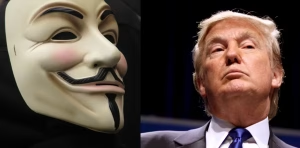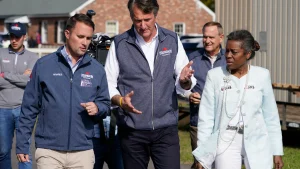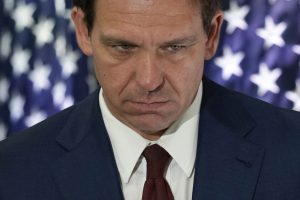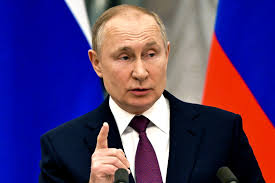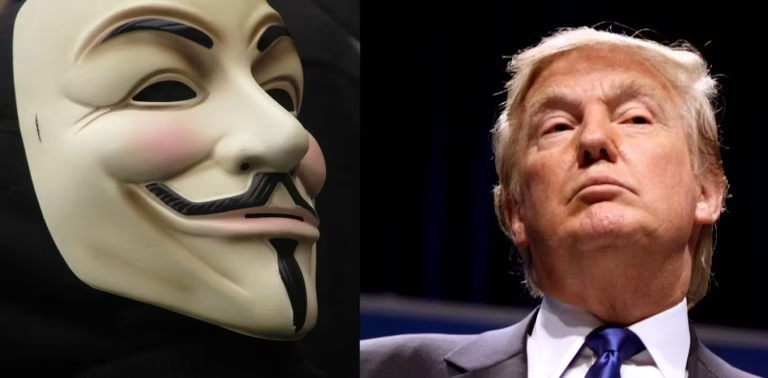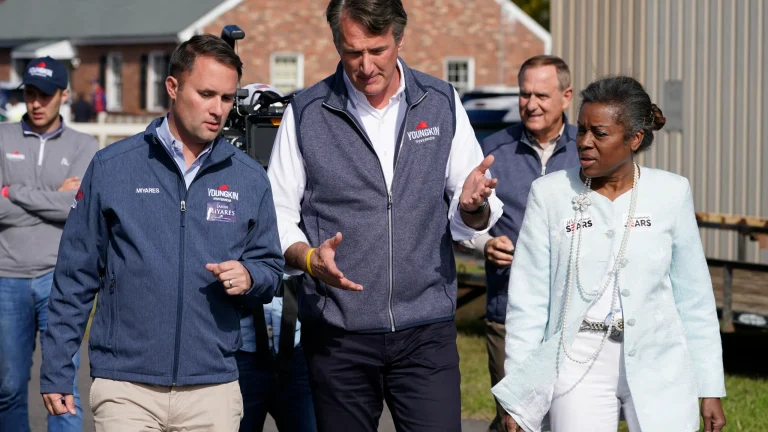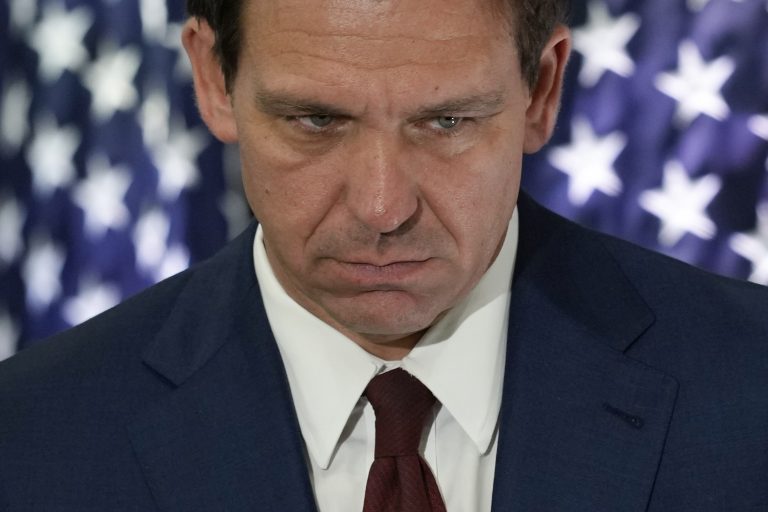Yes, Russians, just like Republicans, love to spread bullshit propaganda. In this story, the Russians are blaming others for higher food prices, and not themselves, the ones who created the problem in the first place. This was the Russian plan when they lost their prime asset in the White House, Donald Trump. Once he was gone Russia had to start a war in Ukraine and destabilize the world, so they could go out and blame everyone else for the problems that Russia created. Not only that, they could make everyone suffer globally, and then bring Trump back or even a newer Trump in Desantis, by amplifying the message that they and they alone can solve the problems, and then folks would vote for anyone who could end the terror as they say. This is standard operating practice with Russia.
Story below:
Russian foreign minister tours Africa, blaming Europe for food crisis.
Just as Sergey Lavrov, Russia’s foreign minister, was about to land in Africa on Sunday, he published an op-ed blaming the West for the looming global food crisis that put millions on the Continent on the brink of starvation. Scores of local media outlets swiftly picked it up. Thousands of people shared it on Facebook.
Over the same time period, Josep Borrell — the European Union’s chief diplomat in charge of pushing back against his Russian counterpart — was a virtual ghost online, based on data from CrowdTangle, a social media analytics tool owned by Meta. He garnered just one mention on Facebook about Africa compared to Lavrov’s tidal wave of coverage.
The latest lopsided showdown between Lavrov and Borrell for the hearts and minds of people across Africa highlights what many within EU political circles have known for years, but few are willing to acknowledge publicly.
In the fast-evolving disinformation battle between Russia and the 27-country bloc, Europe remains outmatched, outgunned and under-resourced to combat the Kremlin’s sophisticated playbook, which has combined the country’s state-backed media, scores of diplomats spread around the world and, on occasion, covert tools to peddle mistruths and outright lies to promote Moscow’s political ambitions to the four corners of the globe.
Those tactics have come into their own ever since Russia invaded Ukraine in late February — and especially since Moscow started misleadingly blaming Western sanctions for keeping the world’s grain supply locked up in Ukraine. For Lavrov, the blame lay at Europe’s door, and in his op-ed aimed at an African audience, he reminded everyone of “the bloody crimes of colonialism.”
With Russia’s bullhorn tactics, it’s a strategy that can scale quickly as Russia’s wily foreign minister traipses across four African countries this week — tactics the EU can’t easily combat. Despite widespread sanctions against the country’s state media like RT and Sputnik within the EU, Russian outlets continue to reach tens of millions of people globally with an overtly pro-Russian message. In response, the 27-country bloc has failed to counteract this full-court press of falsehoods, often relying on staid press releases, bland photo ops and a small number of officials in charge of debunking Russian disinformation.
“Russia’s ability to promote its disinformation has gone unchecked in many parts of the world,” said Bret Schafer, head of the Alliance for Securing Democracy’s information manipulation team that tracks state-backed disinformation. “Its audience [in Europe] may have dwindled since the war began. But that does not mean it’s not finding an audience elsewhere.”
While Russia’s message is everywhere in the four countries Lavrov is visiting this week, it’s not clear it’s actually breaking through. Unlike during the Cold War, when many of the Continent’s governments turned to Moscow for aid, many of the region’s countries now look at China, not Russia, for deep pockets and development assistance.
“Using the evil colonialist narrative is not new as the Kremlin has been using it for years as part of a wider strategy to increase its footprint in Africa,” said Amanda Paul, a senior policy analyst at the European Policy Centre. “Yet it has had limited success. Ultimately, Russia has very little to offer African countries other than arms, security and energy — many deals remain on paper alone.”
Europe’s limited pushback
The ability for Russia to push its disinformation globally while the EU mostly watches from the sidelines is not what Brussels had hoped for when it clamped down on Kremlin-backed media in the wake of the invasion of Ukraine.
For years before Moscow’s attack on its Western neighbor, European countries had been divided over how hard to push back against Russian disinformation, with several governments in places like Hungary and Italy at times overtly favorable to Vladimir Putin’s regime, according to four EU officials who spoke on the condition of anonymity to discuss internal EU conversations. Yet after Kyiv came under attack, the West — including European governments that once pushed back at efforts to call out Moscow’s disinformation — united behind an anti-Moscow stance.
“We are living in a whole new era,” said one of those officials, who highlighted how EU member countries now spoke with one voice about their opposition to Russia, compared to previous infighting between those who wanted to clamp down on Russian state media and those who did not see the likes of RT or Sputnik as peddlers of mistruths. The EU has also recently worked with the United States and the United Kingdom to debunk Kremlin falsehoods, including that Ukrainian President Volodymyr Zelenskyy is a neo-Nazi, before they could garner traction across the West.

Still, Brussels has mostly brought a knife to a gunfight in terms of its ability to combat Russia’s multi-million dollar propaganda machine. That’s particularly true in the EU’s neighboring countries like those in the Balkans and countries with strategic importance like those African states that Lavrov is visiting this week.
So far, Brussels has talked a good game, including European Commission President Ursula von der Leyen’s repeated warnings of Russian disinformation. But it has failed to keep pace with the evolving threat.
Europe’s official Kremlin debunking unit, known as East Stratcom, which is housed within the EU’s diplomatic service, has an annual budget of a few million euros, compared to the almost unlimited resources available to its main adversary: Russian state media. The unit’s primary aim is to highlight Kremlin mistruths via a website that garners a fraction of the views that Russian state media obtain monthly, according to SimilarWeb, a data analytics firm. Despite the recent EU sanctions, RT also continues to evolve its tactics, including creating new sites in German, French, Spanish and English to sidestep the bloc’s ban.
“We are, of course, aware of the attempts to bypass the sanctions,” Věra Jourová, the Commission’s vice-president for values and transparency, told POLITICO via email. “Especially in the online world, this is a ‘whack-a-mole’ game to some extent.”
Where disinformation meets foreign policy
Russia’s propaganda playbook has evolved since its invasion of Ukraine five months ago — and has grown increasingly geopolitical.
Lavrov’s latest trip to Africa follows a barrage of state-backed media articles and posts from official Russian diplomatic social media accounts that have blamed the West, not Russia, for the urgent food crisis engulfing the Continent. In his recent op-ed, for instance, the Russian foreign minister said Europe and the U.S. had worsened food shortages in the wake of the COVID-19 pandemic, while the West’s sanctions against Moscow were equally to blame.
In reality, there are no Western sanctions on the grain stored in Ukraine, even if some companies have expressed caution about working with Russia to get it out.
“They promote Russia’s anti-colonial stance as a way to sway public opinion in its favor and stress ideological ties with African leaders,” said Pauline Bax, Africa program deputy director at International Crisis Group, a nonprofit organization, in reference to Moscow’s recent messaging. “It’s mostly politics than financial support.”
In response, EU officials have touted the bloc’s so-called Global Gateway strategy, a proposed €300 billion plan to provide public and private financial aid to developing economies in the wake of the recent global pandemic. The goal is to provide assistance to countries that may turn to more authoritarian regimes like China and Russia for support, though few projects from the strategy have yet to be unveiled.
In part, Europe’s tactics have suffered from a failure to match Russia’s ability to get its message across to people around the globe, many of which view Kremlin-backed media as a legitimate alternative to local or Western outlets. Multiple domestic media outlets across Africa ran Lavrov’s op-ed unchallenged this week, or linked to Russian state media that promoted the propaganda widely via its massive social media presence.
In Latin America, for instance, RT en Español, the Spanish-language outpost for Russian disinformation, has become a go-to source of news for millions of locals. In French-speaking countries across Africa, RT France has doubled down on its efforts to promote a Moscow-friendly alternative, given that its access to France has dwindled in the wake of the EU sanctions, based on POLITICO’s analysis of the media organization’s social media presence.
For Tijana Cvjetićanin, a fact-checker in the Balkans who has tracked the rise of Russian mistruths, pro-Russia local media also routinely pick up on what first appears on the likes of RT and Sputnik, giving these falsehoods a new lease of life in ways that are hard, if not impossible, for the EU’s limited resources to combat.
“The origin of most of these claims is unequivocally Russian, either from their official sources — Putin’s speeches, the ministry of foreign affairs, their army generals, local embassies — or from propaganda outlets like Sputnik in the Serbian language,” she said. “The local sources are basically translating and republishing their claims, every now and then adding some local ‘flavor.'”

